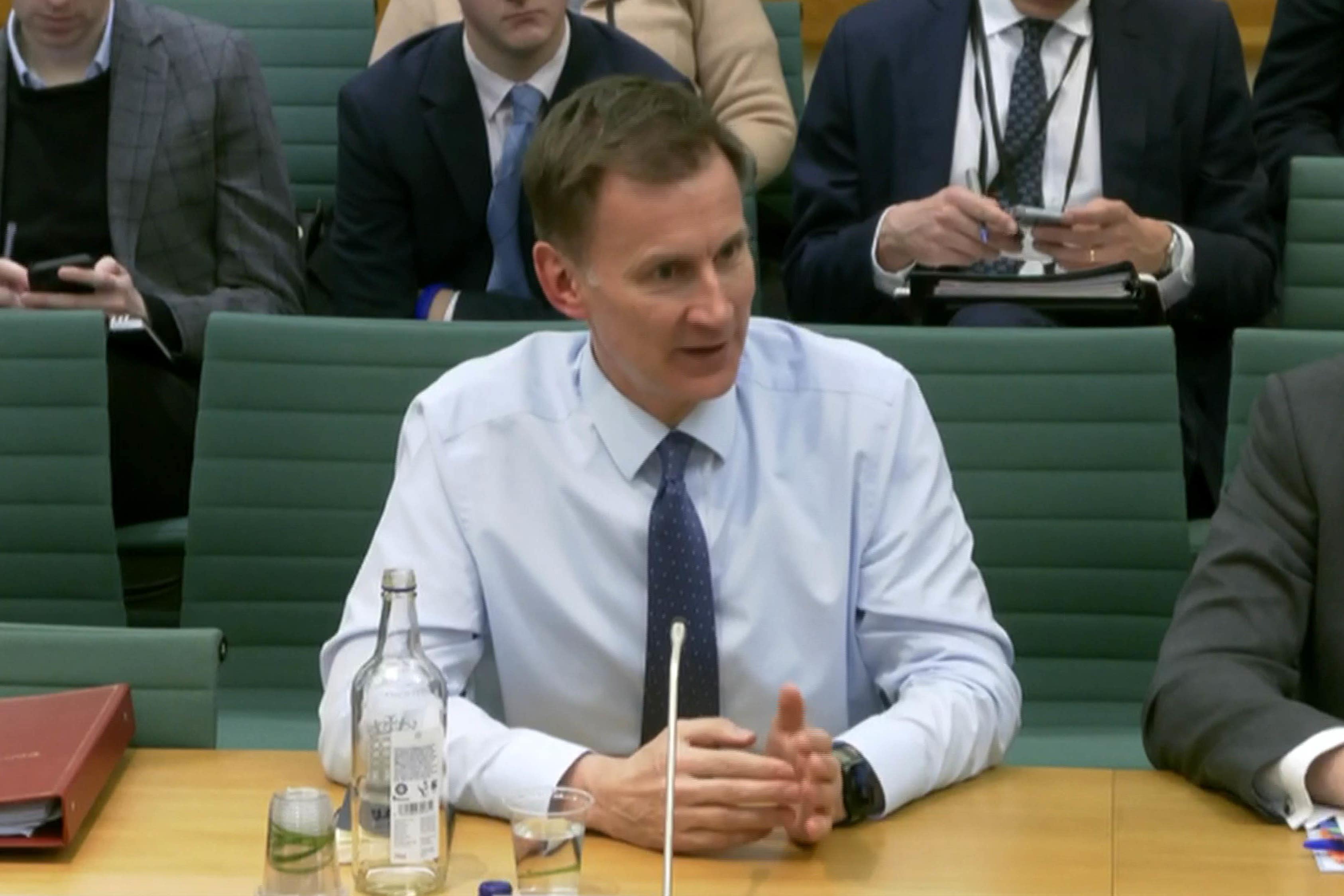Hunt says plan to scrap national insurance will not happen in next Parliament
The Chancellor promised in his Budget to deliver a simpler tax system by eventually getting rid of the tax altogether.

Your support helps us to tell the story
From reproductive rights to climate change to Big Tech, The Independent is on the ground when the story is developing. Whether it's investigating the financials of Elon Musk's pro-Trump PAC or producing our latest documentary, 'The A Word', which shines a light on the American women fighting for reproductive rights, we know how important it is to parse out the facts from the messaging.
At such a critical moment in US history, we need reporters on the ground. Your donation allows us to keep sending journalists to speak to both sides of the story.
The Independent is trusted by Americans across the entire political spectrum. And unlike many other quality news outlets, we choose not to lock Americans out of our reporting and analysis with paywalls. We believe quality journalism should be available to everyone, paid for by those who can afford it.
Your support makes all the difference.Jeremy Hunt has conceded his ambition to scrap national insurance contributions (NICs) will not happen in the next Parliament.
The Chancellor used his Budget earlier this month to set out a 2p cut in national insurance from April with a vague promise to deliver a simpler tax system by eventually getting rid of it altogether.
Giving evidence to the Treasury Committee on Wednesday, the Chancellor said: “It won’t happen in one Parliament, but it’s a long-term ambition.”
He also said: “This is going to be the work of many Parliaments.
“And the reason I can’t give you a timescale is because I’ve said there are two very clear conditions on which the delivery of this ambition rests. One is that it won’t be funded by borrowing, the other is that it won’t be funded by cuts to public services.
“So that means that ultimately it depends on the growth of the economy. Now I can’t predict the rate at which it will grow.”
Mr Hunt accused Labour of scaremongering after Sir Keir Starmer’s party attacked the aspiration to end the double taxation of work by axing national insurance as an unfunded promise.
The Labour leader on Wednesday said it “could be 2022 all over again” as he sought to draw comparisons with Liz Truss’s short-lived premiership with “unfunded” tax cuts in the Budget.
“They tried that under the last administration and everybody else is paying the price,” Sir Keir told the Commons.
“All we need now is an especially hardy lettuce and it could be 2022 all over again.”
Labour also issued a warning about the plan’s impact on the state pension.
The party said: “Entitlement to the state pension is based on people’s contributions during their working life, via their NICs.
“Under the Tories’ plan, employees will not make contributions, creating uncertainty about this entitlement and blowing a £46 billion hole in funding earmarked for the state pension and NHS.”
Mr Hunt told the Treasury Committee that the amount of money raised by national insurance does not determine how much goes into the state pension or the NHS.
He said: “I’m just wondering how it is that Labour MPs can square with their conscience voting in favour of a cut in national insurance at the same time as they’re trying to scare everyone that it will mean cuts in funding for the NHS.”
Richard Hughes, the head of the UK’s official forecaster the Office for Budget Responsibility, has warned that “we don’t know” how the Government would make its spending plans add up amid concerns over a lack of detail from the Budget.
Asked why he could not provide more certainty on his spending plans, Mr Hunt told MPs the Budget spelled out “what our approach to the spending assumption will be in a way that is designed to avoid austerity-style cuts in public services”.
He argued that efficiency savings in public services would plug the gap of around £20 billion that the Institute for Fiscal Studies has predicted would have to be cut to ensure the Government meets its fiscal rule to have debt falling in five years’ time.
Elsewhere, the Chancellor argued it was not “the right time” when challenged over the lack of policies on housing in his fiscal statement.
He said: “This Budget I would have liked to have had some measures that help people get on the housing ladder.
“But it is difficult to do that unless you are absolutely confident that property prices are back on the up, because otherwise you are encouraging people to get onto the housing ladder with the prospect of house prices falling and therefore then falling into negative equity.”